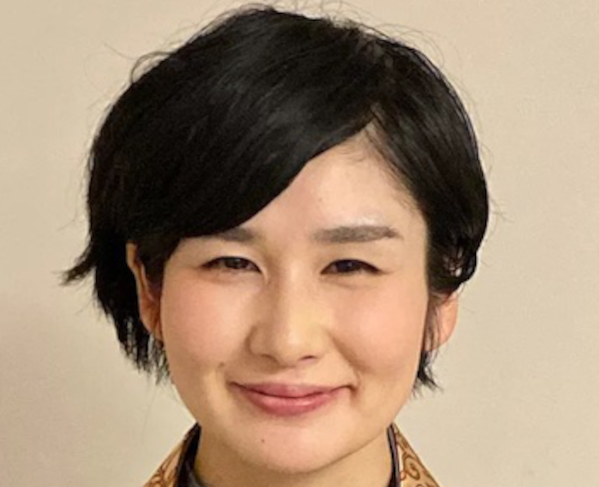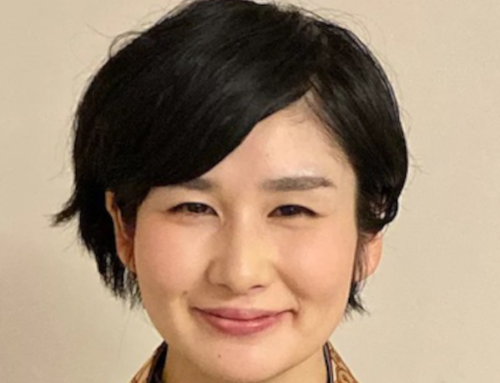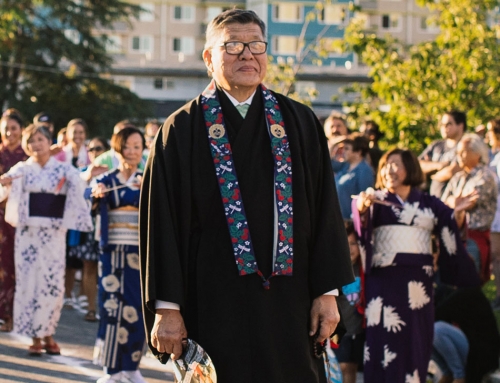In this age in which we live, sad to say, there is a war going on. Since last year there has been a war going on between Russia and Ukraine, which has been influencing our lives. I have heard that there is a book which is now being widely reread by many people.
The title of the book is “The Unwomanly Face of War” written by Svetlana Alexievich who grew up in Belarus. This book is an oral history of women who fought for the Soviets in World War II, a collection of confessions and records of those people’s memories.
Many young women in their teens and twenties went to war. A female soldier said that what frightened her most was wearing men’s underwear rather than being killed. Of course, they had their periods, too. They had to endure the pain, walk on icy roads, and work in the war, which they said was very tough.
However, what those people talked about was not only about sad and tough memories, but also of happy memories that they shared with their friends and the joys that they found even during the hard wartime period.
In one case, a woman went on to reveal that they had gotten married at the battle front. She was a little disappointed at first because a wedding in a war zone meant that she could not wear a wedding dress. However, she said she was so happy that her friends made a wedding dress for her out of leftover cloth from bandages and parachutes they had. I guess these are sides of war that had never been told before. War stories like they told in this book had previously been considered as unimportant stories by saying what’s the use of talking about such things. However, the author has interviewed more than 500 people who have told their stories. The author describes each of these women in the writing as ” a small, big person.” They and their memories have been stomped on, hurt, knocked down and minimized. But through her book, she wanted to shine a light on the fact that there is something important dwelling in these people.
Her expression “a small, big person” in her book resonated with me because this reminds me of the word of Shinran Shonin,” those who are like stones and tiles and pebbles, are grasped and never abandoned by the Tathagata’s light.”
In our world, we aim for achievement and to have status and honor above others. In fact, we even get angry when we do not receive proper recognition. On the other hand, Shinran Shonin turned his back on the idea of how much he had achieved and how much he had risen in status. Shinran Shonin would rather have lived with the people living ordinary lives and put himself in their shoes and listened to Dharma together.
Shinran Shonin used to be a practitioner on Mt. Hiei, aiming to achieve the ultimate enlightenment on his own. In order to refine his own mind toward the goal of enlightenment, he spent a total of 20 years in ascetic practice. However, he found that his mind became foggy even though he tried to brush up on it. I am sure he must have despaired. He must have blamed himself for his own powerlessness, weakness, and insignificance, as the monks around him were striving to reach higher and higher levels one after another. Then, he descended the mountain and met Honen Shonin. The teaching of Namo Amida Butsu, which Honen Shonin taught him, was the teaching that we are all already included in Amida Buddha’s enlightenment, which would embrace any life as the life of a Buddha equally.
Therefore, within everyday life, he deeply appreciated the benevolence of Amida Buddha, which feels the pain of each and every life in this whole world and embraces it all with compassion. No matter how much someone ridicules us for being insignificant, no matter how much we want to give ourselves up, no matter how much we cry in a voice that no one can hear, Amida’s compassion never leaves our pain alone, without missing anyone’s tears or cries. That is why Amida’s compassion is vast enough to be able to accept each and every living thing exceeding any judgements, prejudice and our common sense in this world.
As we listen to the Buddha’s wishes and let the Nembutsu resonate in our hearts, Amida leads us to a life in which we can find joy and meaning of living just as we are.
Shinran Shonin teaches us that as we listen to and take our hearts to the compassion of Namu Amida Butsu echoing over each small life, which is like a stone or a tile, each life will begin to shine as if it will become a Buddha.
He appreciated this in his own life and shared this joy with many people over and over.
Our ancestors who have gone before us and those who were close to us who passed away have encountered this teaching and savored it in their lives, and that is why we are able to hear that we are embraced by the same Amida Buddha here and now.
Also, thanks to Amida’s wisdom and compassion, they were all led to the lives of Buddha and we are able to continue to be connected to them while respecting their lives as Buddhas over time and space.




